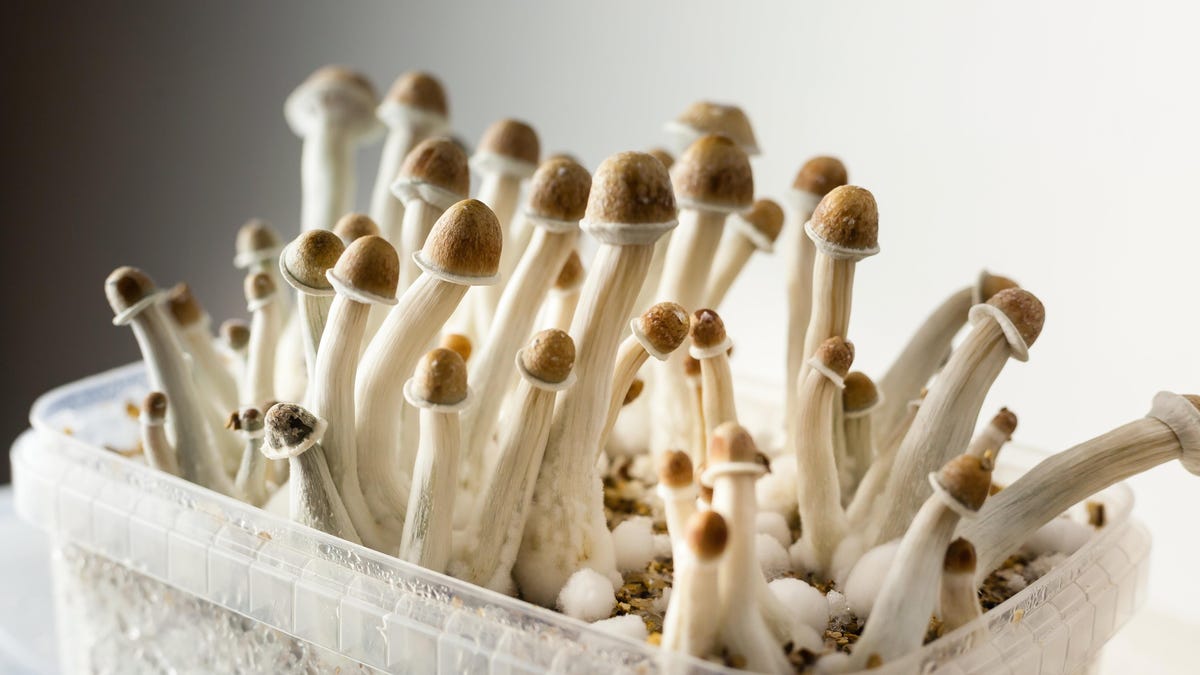
Magic mushrooms might have helped alleviate color blindness in at least one case. In a paper this week, doctors describe a man who experienced modest, long-lasting improvements in his red-green color vision after a single dose of psilocybin-containing mushrooms. The report is only an anecdote at this point but should merit further research, the authors say.
Psilocybin is the primary active ingredient in psychedelic mushrooms. It and other psychedelic drugs have started to be extensively studied for potential medical uses, such as helping to treat mental health conditions like depression and post-traumatic stress disorder. Some recent survey data of recreational drug users has also suggested that psychedelics could improve color vision deficiency, also called color blindness. But as far as the doctors behind the new case report know, there’s never been any published experimental data or case reports looking at this potential benefit, until now.
Advertisement
The report, written by doctors and researchers from the Cleveland Clinic in Ohio and the University of Alabama, Birmingham, was published this week in the journal Drug Science, Policy and Law.
The patient in question is a 35-year-old man with mild deuteranomalia, a type of red-green blindness. He had periodically taken a variety of psychedelics over the years, including psilocybin, LSD, and DMT. After some of these sessions, he noticed an improvement in his red-green vision, which eventually inspired him to conduct his own experiment.
Advertisement
Just before he ingested a single dose of dried psilocybin mushrooms, he took the Ishihara test, a common measure of red-green blindness. Then he kept taking the test at regular intervals for the next four months, reportedly only checking the answers at the end of the experiment. At some point, he talked about his experiment with the doctors, who then administered their own test 436 days after his initial psilocybin use.
The Ishihara test involves looking at plates of colored dots, most of which have patterns that are either invisible or only visible to people with color blindness.The baseline for normal red-green vision is typically considered scoring a 17 or higher on plates 1 through 21. The man’s self-reported score before the mushroom test was 14. Six hours after the test, he only slightly improved, scoring a 15. A day later, however, he scored 18. And eight days later, he reached his peak score of 19. By the time the doctors tested him over a year later, he still scored a 16, though he had subsequently taken mushrooms four months prior to this test.
Advertisement
“A single use of psilocybin may produce partial improvements in [color vision deficiency] extending beyond the period of acute effect, despite this condition typically resulting from a genetic defect,” the authors wrote.
Like most cases, the man’s color blindness is probably caused by genetic mutations in the retina’s cone cells. It’s unlikely that psilocybin and other psychedelics can somehow fix the inherent defects in these cells or are even affecting the eye directly. Rather, the researchers speculate that these drugs could be inducing new connections in the parts of the brain that are involved in higher-level visual processing, particularly around our perception of colors. The authors note that psychedelic users regularly report vivid alterations in how they see color, so this phenomenon might be an extension of that.
Advertisement
Of course, this is just a single case, based mostly on the self-reporting of one person with mild color blindness. The authors say that future studies with large numbers of people tested by researchers will be needed to validate their findings. And from there, we can figure out whether psychedelics will help people with more severe color blindness, how long this effect might last per dose, and exactly how it works.
Services Marketplace – Listings, Bookings & Reviews